Process manufacturing and discrete manufacturing are two different approaches to production that have been used in various industries for centuries. Process manufacturing dates back to the late 1700s, when the first automated flour mill was invented, while Ford Motor Company popularized discrete manufacturing in the early 1900s.
Both Process and Discrete Manufacturing have advantages and disadvantages, making them suitable for different products and industries. Understanding both processes can help you make an informed decision when selecting the right manufacturing process for your business. This article will provide an overview of each type of production process and discuss its advantages and disadvantages.
What Is the Difference Between Process Manufacturing and Discrete Manufacturing?
These manufacturing processes are principally distinguished by their production methods and the type of products they produce.
Process manufacturing involves continuously producing products from raw materials, while discrete manufacturing involves building individual items from components.
Process manufacturing
This is used for producing large quantities of a single product, such as chemicals, food products, beverages, and pharmaceuticals.
It involves using automated machines and robots to control the entire production process from start to finish.
Discrete manufacturing
This style of manufacturing is more suited for producing smaller batches of complex products with multiple components that need to be assembled, such as creating individual items such as cars, furniture, electronics, etc.
This type of production requires more manual labor and often involves customizing each part or component before assembly.
The overlap
There is often a combo of the two types of manufacturing to produce a product. For example, while medications are produced through process manufacturing, the container they come in is made using discrete manufacturing.
Process Manufacturing Overview and Benefits
Process manufacturing is a type of production process that involves the use of raw materials or ingredients to create a finished product. This is done through chemical and physical processes, like blending, mixing, heating, cooling, etc.
Production generally follows a formula or recipe.
What industries use process manufacturing?
Industries that create homogeneous items derived from raw materials use process manufacturing.
These include:
- Food
- Beverage
- Pharmaceuticals
- Chemicals
- Petrochemicals
- Cannabis
- Biotechnology
There isn’t generally a choice between process or discrete manufacturing for these products.
Benefits of process manufacturing
Process manufacturing offers many advantages to businesses, including improved efficiency, cost savings, increased scalability, and higher-quality products.
Products made with process manufacturing have shorter lead times and higher yields than other methods. In addition, with the help of modern technologies like automation and robotics, process manufacturing can become even more efficient and cost-effective for businesses.
Additionally, process manufacturing can help companies reduce their environmental impact. A streamlined and efficient production process can reduce waste and emissions otherwise associated with manufacturing.
Cons of process manufacturing
While process manufacturing can be an efficient way to produce goods, it also has drawbacks. Because of the reliance on machines, getting into process manufacturing often involves a high capital investment.
Process manufacturing requires specialized equipment and expertise, leading to higher operational costs.
Furthermore, process manufacturers must adhere to strict regulations to ensure product quality and safety. Therefore, businesses must weigh the pros and cons before investing in process manufacturing technology.
Discrete Manufacturing Overview and Benefits
Discrete manufacturing processes involve machines, tools, and materials to create individual parts or components that can be assembled into a finished product. This allows companies to develop customized products on demand without investing in large-scale production.
What industries use distinct manufacturing?
Distinct manufacturing has become increasingly popular in recent years because of its ability to create highly customized parts and products. This makes it an ideal solution for companies that need to produce highly specialized items in short time frames.
It is used in various industries, from automotive and aerospace to consumer products and medical devices. Anything that involves creating an object composed of other manufactured parts and not solely raw materials.
Benefits of discrete manufacturing
Discrete manufacturing allows for greater control over the production process and flexibility in design and production capabilities. Discrete manufacturing can also create custom-made products with specific characteristics or features tailored to customers’ needs.
This makes it ideal for small businesses that often adapt their production process to meet customer demand, whether because of changing tastes or technology.
Discrete manufacturing can be more cost-effective than other production methods since it allows for more flexibility in materials and processes. It can also help reduce inventory costs since you don’t have to store large amounts of parts or components. In addition, since it’s often less automated, there is generally less need for specialized machinery.
Cons of discrete manufacturing
However, there are some drawbacks associated with discrete manufacturing as well. Discrete manufacturing can be more time-consuming than batch production because of the extra steps required in each product’s creation. It can also lead to longer lead times since each part must be manufactured individually rather than in bulk.
Additionally, there may be more quality control issues since someone must inspect each product individually before it is shipped out. This adds time and labor to the production process and introduces more potential for human error.
Finally, it can become difficult for companies to keep track of all their components if they produce many unique items.
How To Choose Between Process or Discrete Manufacturing?
If you’ve already chosen the industry and product you’re producing, you have little choice regarding the process. But if you’re still in the consideration phase, there are some things to consider.
The choice between process and discrete manufacturing depends on various factors, such as cost, complexity, and scalability. Process manufacturing is more efficient and cost-effective than discrete manufacturing, requiring fewer resources to produce more products. However, discrete manufacturing allows for more customization and flexibility in production.
If you’re getting into the manufacturing industry, Confianz can help! We guide businesses through the steps it takes to become successful.
Your Business Needs an ERP
ERP software helps manufacturers streamline their processes, increase productivity, improve customer satisfaction, reduce costs and improve efficiency. It also helps them to make better decisions by providing them with accurate data from which they can make informed decisions. Acumatica is an ERP software that offers robust accounting features alongside its other modules. In addition, it is a true cloud option, meaning it was built for the cloud and requires no software to run. Acumatica was founded in 2008 when the founders saw the need for a flexible, cloud-based ERP solution for small and mid-sized businesses.
Acumatica’s manufacturing ERP will help you manage every aspect of your manufacturing business in one place, and boost efficiency with a comprehensive, mobile, manufacturing ERP designed for your unique needs. Confianz offers Acumatica consultation and help with Acumatica Implementation.
Whether you decide to use process manufacturing or discrete manufacturing, we can help you find software solutions to become more efficient without spending a fortune. Contact us today to get started!







